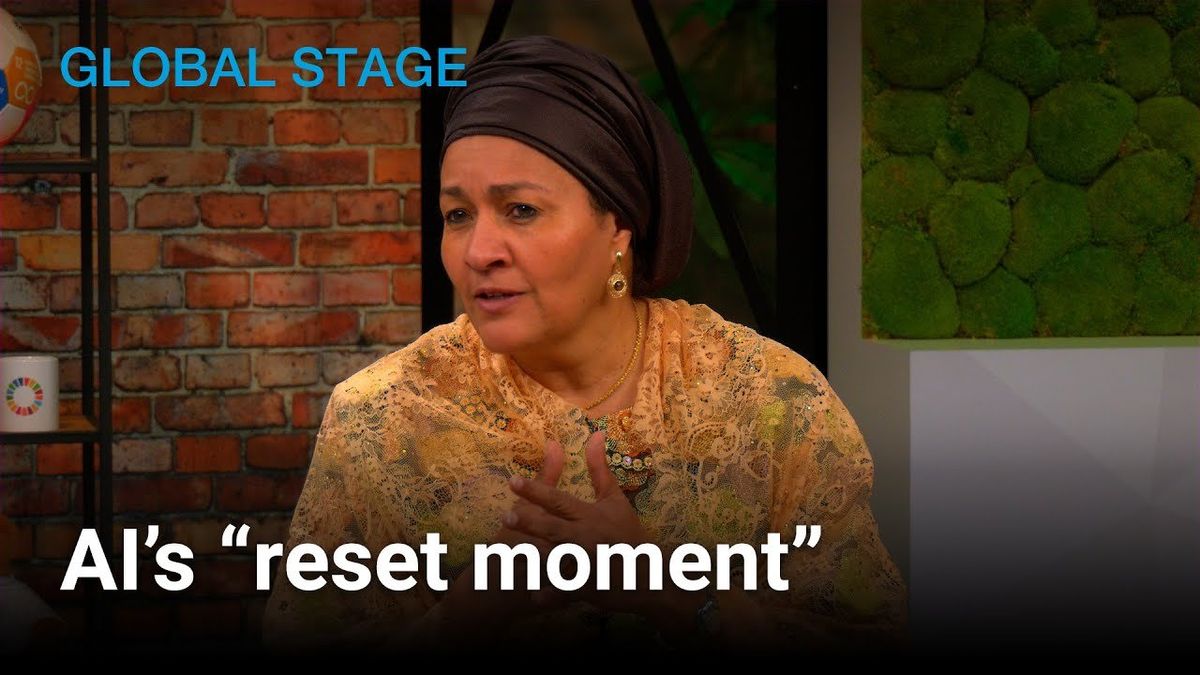Staving off "the dark side" of artificial intelligence: UN Deputy Secretary-General Amina Mohammed
Artificial Intelligence promises revolutionary advances in the way we work, live and govern ourselves, but is it all a rosy picture?
United Nations Deputy Secretary-General Amina Mohammed says that while the potential benefits are enormous, “so is the dark side.” Without thoughtful leadership, the world could lose a precious opportunity to close major social divides. She spoke during a Global Stage livestream event at UN headquarters in New York on September 22, on the sidelines of the UN General Assembly. The discussion was moderated by Nicholas Thompson of The Atlantic and was held by GZERO Media in collaboration with the United Nations, the Complex Risk Analytics Fund, and the Early Warnings for All initiative.
She says it will take a “transformative mindset” and an eagerness to tackle more and bigger problems to pull off the transition, and emphasizes the severe mismatch of capable leadership with positions of power.
"Where there is leadership, there's not much power. And where there is power, that leadership is struggling,” she said.
Watch the full Global Stage conversation: Can data and AI save lives and make the world safer?
- The UN will discuss AI rules at this week's General Assembly ›
- Ian Bremmer: How AI may destroy democracy ›
- AI at the tipping point: danger to information, promise for creativity ›
- Can data and AI save lives and make the world safer? ›
- Podcast: Artificial intelligence new rules: Ian Bremmer and Mustafa Suleyman explain the AI power paradox ›
- How should artificial intelligence be governed? ›
- Will consumers ever trust AI? Regulations and guardrails are key ›
- Governing AI Before It’s Too Late ›
- The AI power paradox: Rules for AI's power ›
- AI for good, AI for bad: Bringing balance to the force - GZERO Media ›

















